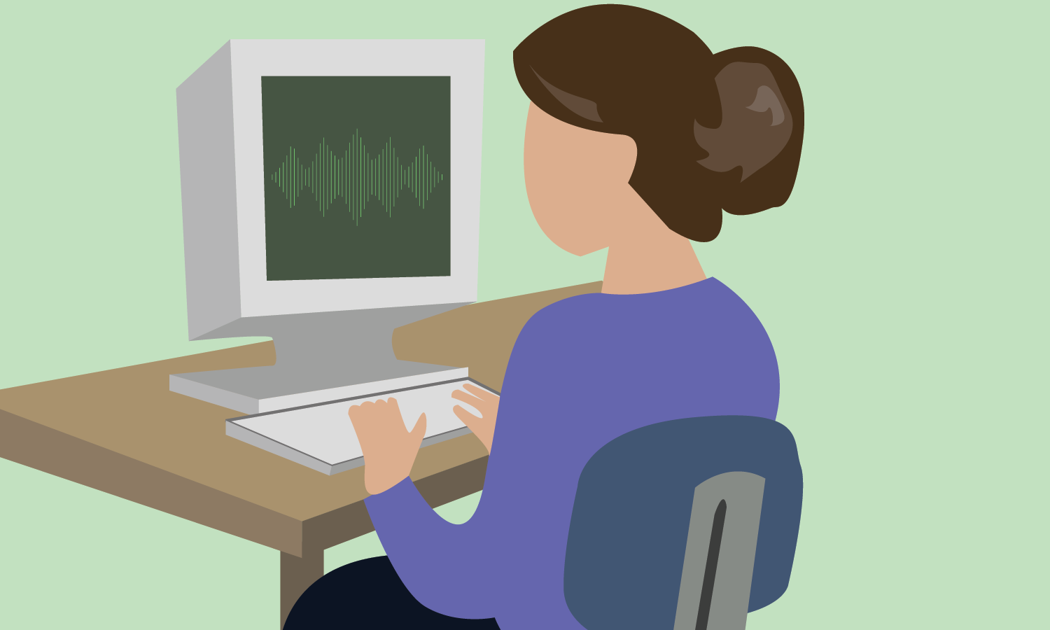JMU's hearing aid lab provides a unique opportunity to students - The Breeze

JMU is the only university in Virginia that has an audiology doctorate, as well as a hearing research laboratory. Audiologists are uniquely trained to diagnose the exact nature of a person’s hearing loss.
Since there’s no medicine to treat permanent hearing loss, the only treatment is a hearing aid or cochlear implant. Results from their research are used in the clinic to benefit patients in a variety of ways.
“The hearing aid lab isn’t only for research,” Ariana Morris, a second-year doctoral audiology student, said. “It’s been really, really helpful in my education to just be able to go in there and program hearing aids and work with equipment outside of the classroom in my free time to help expand my knowledge.”
Morris has been researching personal sound amplification products along with Ayasakanta Rout, associate professor in the communication sciences and disorders and the program director of audiology. She said she feels exceptionally grateful to be able to use state-of-the-art equipment to assist in her research.
“Dr. Rout is amazing at letting us have access to this lab at all times and making sure that he’s available to go with us,” Morris said. “It’s not just going to a professor to find answers, but giving us the opportunity to find answers ourselves. It really makes us great investigators and researchers in our move from a student to our careers.”
In the lab, they focus on clinical outcomes of their research, along with the basic science of hearing aids. They look into the benefits and satisfaction that individuals receive from the hearing aids and figure out what features work and which don’t.
“One of the coolest things about our research is that every project that we do in this research lab has at least one student involved in it,” Rout said.
Rout can simulate real-world environments, such as a restaurant or a church, in the lab. Their research allows their human subjects to interact with different hearing aids from the top 25 manufacturers.
Rout said it’s a distinct advantage that JMU students are trained in many different types of programming for a future job and similar programs don’t have the resources to offer. The hearing aid manufacturers mutually benefit from the research.
“It’s ultimately beneficial to the patient,” Rout said. “We have better-trained clinicians who can work with a variety of hearing aid companies and their products.”
Lab results are evidence-based and can be used in clinical practice. Clinicians treating patients may not have access to a lab, but they can use the results from JMU’s lab to inform themselves and their patients. Melissa Garber, a clinical educator in the department of communication sciences and disorders, is involved with the clinic.
“Sometimes, the research [from hearing aid manufacturers] will often indicate their product is the best,” Garber said. “An independent researcher doing clinical research on multiple different brands can then decide what the best product is from that particular study.”
Garber said students are often involved in the research laboratory. They’ll take their findings from the laboratory and pass that information onto their patients as they make decisions about their hearing health.
“It’s amazing how JMU seems to really be emphasizing the importance of research,” Morris said. “They’re providing more and more opportunities for students to look into research and actually not just hear about it but be active participants.”
Contact Matthew Sasser at sasserma@dukes.jmu.edu. For more coverage of JMU and Harrisonburg news, follow the news desk on Twitter @BreezeNewsJMU.



Comments
Post a Comment